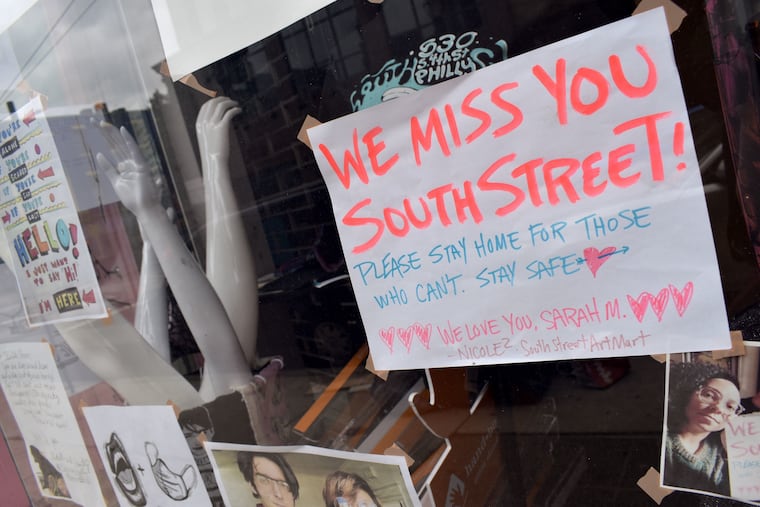Businesses need money. Taxpayers need oversight on that money. | Editorial
Efforts to control the spread of the coronavirus by shutting down businesses have taken an enormous economic toll. Fresh federal and state small business assistance funds must reach recipients quickly and be monitored well.

Family-owned firms and other small businesses have shouldered more than their fair share of the burden of the coronavirus pandemic. As the Philadelphia region emerges from a three-month lockdown, and stores and restaurants begin to reopen, Pennsylvania and New Jersey are expanding grant and loan programs to help eligible firms. Both states also are making assistance programs more flexible in order to make them accessible to smaller businesses.
Small businesses have had to endure not only a loss of livelihood but also ambiguous signals about when to start planning to reopen. Adding to the stress: The cumbersome rollout, daunting procedures, overwhelmed systems, and delays that shuttered businesses in the Small Business Administration’s Paycheck Protection Program. The fact that well-heeled corporations like Shake Shack got money didn’t help build public trust.
Although $660 billion has been committed by Congress, the SBA reported Monday that only $500 billion in loans to 4.5 million firms have so far been approved by lending institutions. Relentless banking industry consolidation has disrupted local connections between lenders and small businesses, particularly in communities of color where even successful family firms sometimes struggle to access capital. No wonder an analysis released Tuesday by City Controller Rebecca Rhynhart suggests the pandemic’s economic impact is being disproportionately felt in Philadelphia’s most disadvantaged neighborhoods, with a large number of job losses among workers of color in lower-paying positions.
Under the Coronavirus Aid, Relief, and Economic Security (CARES) Act, Pennsylvania received $2.6 billion, and New Jersey $3.4 billion, in federal COVID relief funds that can only be used for pandemic-related purposes. The planned spending on business assistance was relatively modest.
A new program to help businesses cover operating expenses and transition to reopening will use some of those CARES funds. Gov. Tom Wolf this week announced $225 million in small business grants, a follow-up to a $61 million program that provided working capital to 133 firms statewide. Nearly half of that amount — $100 million — will target historically disadvantaged businesses. The New Jersey Economic Development Authority on Tuesday opened a $50 million second round of assistance for small businesses, including micro-loans for home-based firms. Philadelphia’s COVID-19 Small Business Relief Fund has provided $13.3 million to 2,000 small businesses citywide.
This new money should not be subject to the red tape and structural boondoggles that beset the early rounds of financial assistance. Businesses need money now. But the pressure to get it out the door fast must be balanced with a proper degree of oversight so that those public dollars don’t get wasted or subject to fraud.
We’re encouraged that in both states, the implementation of these programs relies on long-standing relationships with local community development organizations and financial institutions.
But as Spotlight PA reported earlier this week, rules for how the money can be spent and who can benefit from that spending “remain largely unwritten.”
It seems unlikely that the Trump administration will be much of a watchdog. So it will be up to local and state governments, and their community partners, to make sure the money for small business assistance and other worthy programs gets where it’s most needed, and does the most good.